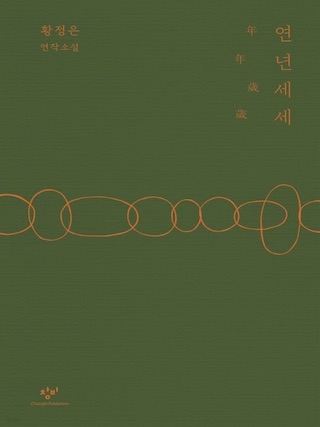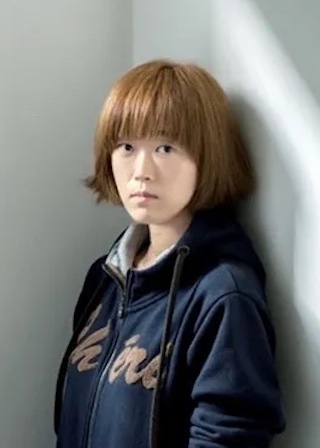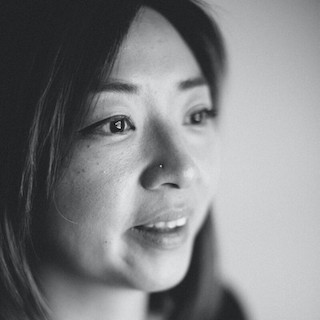“Year After Year” by Hwang Jungeun and Janet Hong [Excerpt]
 To celebrate Women in Translation Month, we will be posting excerpts, readings, summaries from the Translation Database, former Two Month Review seasons, and various special offers—so stay tuned!
To celebrate Women in Translation Month, we will be posting excerpts, readings, summaries from the Translation Database, former Two Month Review seasons, and various special offers—so stay tuned!
Today’s excerpt is from Year After Year by Hwang Jungeun, translated by Janet Hong as part of her Translator Triptych. (Order now! All three titles for $30!!!)
You might recognize Hwang Jungeun from her two Tilted Axis titles: One Hundred Shadows (translated by Jung Yewon) and I’ll Go On (translated by Emily Yae Won). (Also, Open Letter will be publishing Hwang’s Savage Alice in the near future.)
And here’s the current copy for Year After Year:
Three women—the old mother and her two daughters—contemplate their family life and their bottled-up feelings through the novel’s placating yet oddly unnerving prose.
Year After Year is divided into four large chapters; the first unravels from the perspective of Sejin, younger daughter, the second from that of Youngjin, older daughter, the third from the mother’s, and the fourth, back to Sejin’s. Throughout the course of the novel, a number of themes are developed, including its discussion of interracial marriage, different forms of family, and sexual minorities. Circumstances and history forced the mother to the life of obedience, familial obligations and financial hardship forced Youngjin to give up her dream and support the family, and the reality of her culture forced Sejin to be in the closet. And all the while, these three women, while empathizing with each other, seem entrapped in the cycle of forcing each other to further succumb.
Year After Year is available for purchase from better bookstores everywhere, Open Letter Books, Bookshop.org, or wherever you get your books.
Gravedig
After the Chuseok holiday, before the ground freezes.
So Yi Sunil had said numerous times, and now the time had come. It was the second week of November. At six o’clock in the morning, Han Sejin got in her car and sped along the mostly empty Olympic Highway and arrived at Sunil’s apartment. She pulled up to the shuttered garage and turned off the engine. Her seat chilled almost immediately. The day was bitter cold. It would get a little warmer when the sun rose fully, but they were heading toward the Military Demarcation Line (MDL), where the temperature, even at midday, was lower than during nights in the city. It was the same every year.
Sejin peered down at the cracked, uneven surface of the parking lot and retied her hair. She went up to the fourth floor. Sunil was waiting, everything already packed. Containers of mung bean pancakes, stuffed chili peppers, and stir-fried beef were stacked inside a paper shopping bag, along with some apples and pears, and a bottle of liquor. Next to the bag sat a smaller backpack. She’d said she wanted to use plates this time. Not Styrofoam or aluminum foil trays, but real plates, since this visit was to be their last. As soon as Sejin picked up the backpack, it sagged under the weight of the dishes, and there was a clatter.
They’re going to break. You don’t care?
Why would they break? They won’t, as long as you’re careful, Sunil said, adding, I’m bringing them back.
Sejin said no more and carried the bags down.
*
She loaded the bags in the trunk and spread out a blanket in the backseat. She started the car and turned on the heat. When Sunil finally appeared from the entrance of the mid-rise, Sejin was crouched in front of the car, examining the ground. Two rusted screws, dull and as fat as a thumb, protruded from the surface. They were all that remained of the parking barrier. Her brother-in-law had installed it to prevent people from parking illegally in their lot, but it must have been a hassle for him and the tenants to get in and out, because it was removed one day, leaving behind these two screws anchored deep into the ground. They weren’t too sharp, but sharp enough to puncture a tire if a car drove over them at a certain angle. On her last visit, Sejin had mentioned they could be dangerous, and Sunil had said she’d relay the message.
They’re still here, Sejin said, standing up.
Sunil frowned, shaking her head.
Did that mean she’d told her son-in-law, but he’d done nothing? Or that she hadn’t mentioned it yet, because she hadn’t found the right time to bring it up? Without asking any of these things, Sejin helped Sunil into the backseat, taking the duralumin cane from her and stowing it in the trunk. She then removed Sunil’s right shoe, helping her prop her leg onto the center console and covering her swollen knee with a blanket. Sunil was wearing a wool cap with a small brim, a pair of thick quilted trousers, a red-and-brown cardigan in a dizzying pattern, and a skinny knit scarf wrapped around her neck.
You won’t get cold dressed like that?
Sunil said she had on many layers underneath and patted her belly. She’d also packed hiking boots, which she’d found stored neatly in a box. They belonged to Sejin’s older sister, Yeongjin, who hadn’t touched them after using them once. Though they were a little big, as long as Sunil put on an extra pair of socks before setting out, they should fit just fine. At last, they left.
*

Hwang Jungeur
They headed northeast. If they traveled 100 kilometers an hour, they would arrive at their destination in two and a half hours. Grandfather’s grave was in Jigyeong-ri village, in the town of Galmal of Cheorwon County, Gangwon Province. Both women called him Grandfather, but he was actually Sunil’s grandfather, which made him Sejin’s great-grandfather. He was buried deep in the mountain where a frontline military unit was stationed. The graves of other Jigyeong-ri residents lay scattered over the mountain as well. They needed to pass through the military base in order to access the graves. And so, every year around Chuseok, villagers gathered in front of the base, carrying sickles and bundles of food. After leaving their IDs at the checkpoint, they hiked up the mountain to hold memorial ceremonies in honor of their ancestors, each family escorted by one or two armed soldiers. From the mid-eighties, Sunil visited her grandfather’s grave every year without fail, but once Sejin got her driver’s license and a car of her own, Sunil went with her daughter. When Chuseok drew near, Sunil would give an old neighbor from the village a call and ask when everyone was planning to head up the mountain. Then she’d call Sejin and update her on that year’s visit.
Hey, let’s have some gotgam.
Sunil pulled off the end and tore the dried persimmon in two. She held it out toward Sejin, who accepted it without taking her eyes off the road. The car continued to glide forward. The sun was rising, and to their right, the mountain fog was creeping down toward the rice paddies spread below. Sejin said they weren’t going to be late after all, since there was no traffic on the roads, but Sunil was worried the workers had headed up the mountain already, and said they should have set out earlier.
We need to make the last offering before they start digging.
Sunil was born in Galgol, north of Jigyeong-ri, but after she lost her parents, she went to live with her grandfather in Jigyeong-ri. Some of her relatives had disappeared without a trace in the border clashes that took place along the 38th parallel during the Korean War, and her grandfather, her only remaining next of kin, took the five-year-old Sunil in, raising her and getting her to run errands for him. When she was fifteen, she was sent to live with a distant relative in Gimpo, and there she helped at a market until she married Han Jungeon, in a match arranged by one of the merchants. Sunil liked to tell Sejin how she’d never in her wildest dreams expected her grandfather to make the long, inconvenient journey to see her get married, but he’d come after all, dressed in his worn traditional coat. He’d sat in the wedding hall for a bit, eaten some noodles, and then left.
Grandfather passed away in Jigyeong-ri in 1978. At the crack of dawn, three or four men from the village had shouldered his coffin and buried him halfway up the mountain. Sejin had never met him, but she knew what he looked like. A framed photo of him hung on the wall of Sunil’s apartment, along with their family pictures. In the shot taken head-on, he had a scruffy beard and wore a fabric skullcap over coarse, white hair. Just from his face and expression alone, one could tell he was very short, and that his forehead, eyebrows, eyes, and nose were round, like Sunil’s. He seemed like someone Sejin had met many times, perhaps because she’d grown up staring at his picture her entire life. So she visited his grave every year, feeling as if she were looking in on him. But before this, Sunil had made the trip on her own, changing buses several times. Neither Jungeon nor her older daughter Yeongjin had any desire to accompany her, and Mansu, her only son and the youngest of her children, had been too young or hadn’t known the way to the gravesite to go with her.
Why go through all that trouble every year?

Janet Hong
Yeongjin and Jungeon couldn’t understand why Sunil went to such lengths to visit her grandfather’s grave. How could they possibly know about the dried-up burrows or the shrubs draped occasionally with snakes, and how, in just a year, the weeds would have grown as tall as a person that they’d have to hack them down with a sickle in order to pass through? Or about the moss and the trees twisted from lack of sunlight, the burial mound crushed and trampled by wild boars, the chestnut trees surrounding the grave, or the silence of pine trees? Sejin alone knew the reason why Sunil went up the mountain every year, cutting a path through the forest. It was her home. For her mom, that grave was her childhood home.
Grandfather, I’m a granny now. I don’t know if I’ll be able to come next year.
For the past few years, this is what Sunil has been saying at the graveside, but this visit was truly her last. She was seventy-two years old and planned to have knee replacement surgeries in both knees next year. Once a child of the mountains, she’d been surefooted on steep terrain, harvesting fiddleheads and young shoots off angelica trees, but now she needed a cane even on flat land, and she walked slowly, grimacing from the pain. She’d held out for several years, saying each time it was her last, but she couldn’t manage the wild rugged terrain anymore and had finally accepted the truth earlier this year. After worrying about Grandfather’s resting place that would lie deserted deep in the mountains, she resolved to dig up his remains and get rid of the grave altogether. After all, no one would visit him once she was gone.
Year After Year is available for purchase from better bookstores everywhere, Open Letter Books, Bookshop.org, or wherever you get your books.
The large image associated with this post is copyrighted by The Korea Times.

Leave a Reply